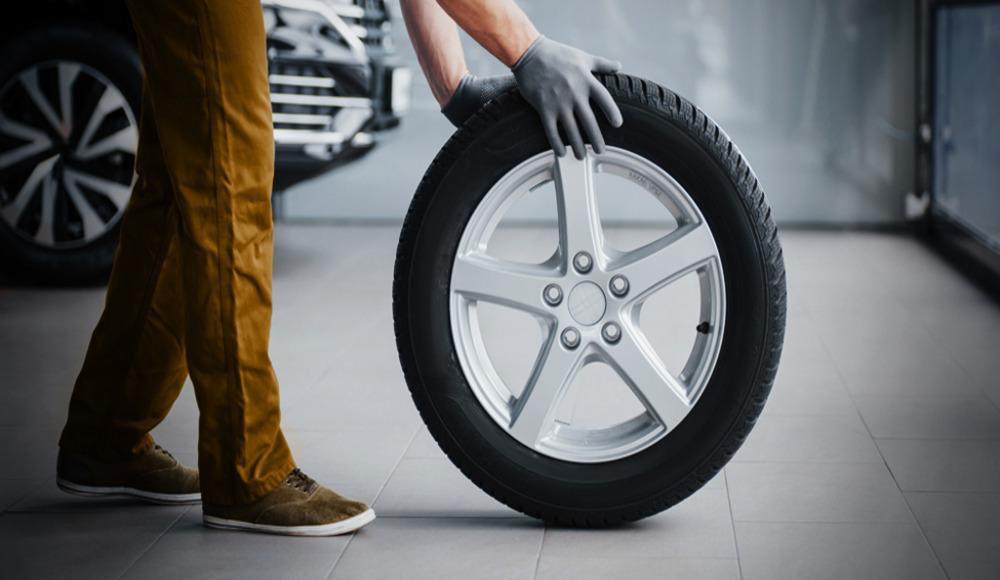Driving in Dubai during the summer means battling some of the world’s most extreme temperatures. The constant exposure to intense heat and scorching asphalt severely stresses every part of your car, especially the tyres. Ignoring this risk can lead to rapid tyre degradation, increased risk of blowouts, and compromised safety.
Adopting smart tyre maintenance in Dubai is not just about extending the life of your tyres; it is a critical safety measure that can prevent accidents and save you significant repair costs.
This guide covers essential care tips, crucial inspection practices, and replacement guidance to ensure your safety on the UAE’s hot roads.
How Heat Impacts Tyre Performance
Dubai’s intense climate presents a unique challenge to tyre durability. The science is straightforward: high ambient temperatures combined with friction from driving cause the internal tyre temperature to soar. This excessive heat directly affects the rubber compound, leading to accelerated tyre wear in hot weather.
A key concern is tyre pressure in summer. The heat causes the air inside the tyre to expand, raising the pressure. While this may sound like a minor issue, improper pressure, coupled with high road temperatures, significantly increases the risk of a dangerous blowout.
Therefore, understanding how to prevent tyre damage in heat is fundamental for maintaining safety on Dubai’s roads.
Top Smart Tyre Maintenance Tips
Implementing a proactive maintenance routine is the best defence against the damaging effects of the UAE summer.
1. Check Tyre Pressure Regularly
Tyre pressure in summer fluctuates widely, often increasing as the day heats up. Checking the pressure when the tyres are cold typically in the morning is crucial for accuracy.
Experts recommend weekly pressure checks, especially if you plan on undertaking long desert drives or highway journeys. Maintaining the manufacturer's specified pressure is essential for maximising the life of your tyres and ensuring optimal handling.
2. Inspect Tyre Tread and Surface
A simple visual inspection can save your life. Regularly inspect the tread depth; adequate depth is vital for tyre care tips for hot weather as it ensures proper road grip and safe braking.
Also, look closely at the tyre surface and sidewalls for signs of heat damage. This includes small cracks, bulges, or discolouration, which indicate the rubber compound is weakening under the thermal stress.
3. Park in the Shade Whenever Possible
Direct sun exposure is a silent tyre killer. Ultraviolet (UV) rays and intense heat accelerate the weakening of the rubber compounds and sidewalls.
Whenever possible, park in shaded or covered parking spaces. If no shade is available, even briefly parking on a gravel or concrete patch instead of black asphalt can help reduce the direct heat absorption by the rubber.
4. Rotate and Align Tyres Frequently
Uneven wear drastically reduces a tyre’s lifespan and compromises vehicle safety. Tyre life extension tips always include regular rotation, typically every 10,000 km, to ensure the wear is distributed evenly across all four tyres.
Proper wheel alignment is equally important. It ensures the car handles correctly and prevents premature wear, enhancing car safety in Dubai heat by maintaining optimal road contact.
5. Keep an Eye on Tyre Age and Condition
A tyre may look fine on the outside, but its internal structure degrades with age, especially in extreme temperatures. Most manufacturers recommend replacing tyres after six years, regardless of tread wear.
Regular inspections and timely Tyre Replacement in UAE help maintain vehicle safety and reliability on hot roads. Do not overlook the importance of checking the manufacturing date, or DOT code, to ensure you are not running on old or expired rubber.
Choosing the Right Tyres for Dubai’s Climate
Effective smart tyre maintenance in Dubai starts with selecting the right product engineered for the environment.
Understand Tyre Material and Composition
Not all tyres are created equal. Tyres designed for temperate climates may fail quickly in Dubai. Look for tyres with specific heat-resistant compounds, often containing high levels of silica.
These compounds are better at maintaining structural integrity and resisting thermal breakdown, making them true heat-resistant tyres UAE drivers rely on. While summer tyres offer good dry grip, all-season tyres often provide the best balance of durability and performance for general driving in the Emirates.
Find the Right Tyre Brand and Model
Research reliable tyre brands known for manufacturing products that can withstand desert and city driving conditions. Many leading brands offer specific models tailored for high-temperature regions.
When choosing, prioritise tyre life extension tips and check for comprehensive warranties against early defects caused by heat stress, which provides added security for car performance in hot climates.
Preventive Car Habits to Extend Tyre Life
Your driving behaviour is just as important as your maintenance routine in extending tyre life.
Always adhere to your vehicle's load limits; overloading significantly increases tyre stress and heat buildup. Avoid over-speeding, especially on long highway stretches, as increased speed generates more friction and heat. Drivers should adopt smart driving apps or in-car systems to monitor tyre conditions in real time.
Finally, frequent car maintenance UAE checks, including balanced loads and correct fluid levels, contribute to overall vehicle health, reducing the strain on your tyres.
Frequently Asked Questions (FAQ)
How often should I check tyre pressure in Dubai?
Check it weekly or before every long trip for safety.
Can Dubai’s heat damage my tyres?
Yes, prolonged exposure can cause cracks and faster wear.
When should I replace my car tyres?
Every 3–4 years or when tread depth drops below the safety limit.
Are special tyres needed for UAE weather?
Yes, choose heat-resistant tyres suitable for high temperatures.
Conclusion
Tyre health is vital for safe and efficient driving in Dubai. By adopting smart tyre maintenance in Dubai practices like weekly pressure checks, frequent inspections, and parking smartly, you proactively mitigate the extreme risks posed by the climate. We encourage every driver to make these habits part of their routine, ensuring their safety and the longevity of their vehicle. Drive safely and stay aware of your tyre condition.



